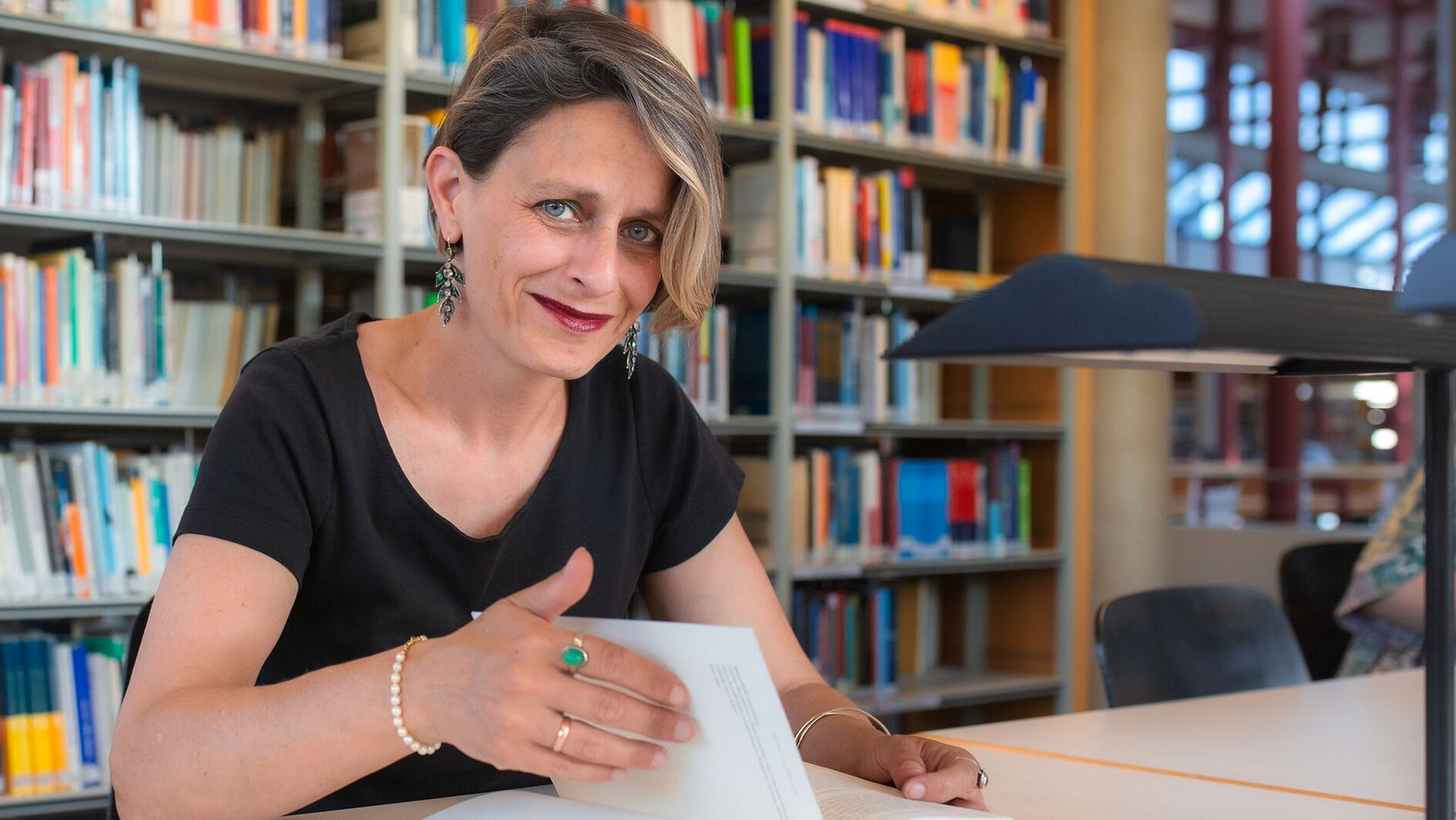New at Leuphana: Prof. Dr. Maud Meyzaud – The end of a great narrative
2025-05-19 Is the enlightened West superior to the Islamic world? In various contexts, the new Heisenberg Professor questions the narrative of a supposedly dominant Europe and invites readers to radically shift their perspective with her literary research: “Enlightenment is a product of transcultural encounters.”
At the beginning of the 8th century, Muslims conquered the Iberian Peninsula. The nearly 1,000 years of Muslim rule are considered a golden age of culture, science, and peaceful coexistence between different religions. The story “The Philosopher as an Autodidact” was written as early as the 12th century. It was written by the Andalusian ʿAbū Baker ibnṬufail. The Latin translation became a bestseller in Northern and Western Europe around 1700. “Nevertheless, hardly anyone knows about this enlightening Islamic work,” says Maud Meyzaud. Yet the influence of the work on our modern Western world is greater than we think, as the professor of modern German and comparative literature explains: “Without this book, the European Enlightenment would not have been possible,” says the literary scholar. She researches transculturality, i.e., the mixing of cultural influences, and rejects the narrative of a superior Western Enlightenment: it was not Protestantism alone, she argues, but its search for contact with an “Islamic Enlightenment” that helped the “European Enlightenment” achieve its breakthrough.
In her research projects funded by the DFG's Heisenberg Program, Maud Meyzaud critically questions the grand narrative of secularization. In particular, she doubts the idea of a linear and homogeneous process rooted in Christianity. Instead, she emphasizes the constitutive role of transcultural interconnections for European literature and culture. “Western hegemonic thinking, which preaches reason internally but subjugates externally, is difficult to maintain. Enlightenment is a product of transcultural encounters,” says the researcher.
Methodologically, she traces the path and reception of individual texts across transcultural boundaries. In another project, she is researching works by European-Jewish intellectuals who fled Nazi Germany to Latin America. She is particularly interested in the anti- and postcolonial writing practices of Anatol Rosenfeld and Anna Seghers, and is investigating how cosmopolitans find a foothold in their homelessness. Through their encounter with the consequences of colonialism and slavery, “exile authors learn to interweave two histories of violence—and in doing so, they invent, in a sense, the methodological foundations of contemporary cultural studies research,” explains Maud Meyzaud.
The relationship between the memory of the Shoah and other histories of violence that also originate in Europe is a central challenge of our time, according to the researcher.
Maud Meyzaud studied philosophy at the Université Marc Bloch in Strasbourg and received her doctorate from the University of Konstanz. From 2009 to 2011, she was a postdoctoral researcher at the University of Erfurt, followed by a research position at the FernUniversität in Hagen and at Goethe University Frankfurt. During her postdoctoral phase, she was also a visiting assistant professor in the German Department at Northwestern University (Evanston). In 2020, she habilitated at Goethe University Frankfurt (venia legendi in general and comparative literature and German studies). In 2021/22, she was a research assistant in the World Literature program at the Leibniz Center for Literature and Cultural Research in Berlin. After two professorial appointments in Konstanz and Munich and a fellowship in São Paulo, Brazil, she came to Lüneburg in 2024. In 2024, she was a fellow at the Leuphana Institute for Advanced Studies (LIAS) in Culture and Society and in 2025 accepted the Heisenberg Professorship for Modern German and Comparative Literature at Leuphana.

